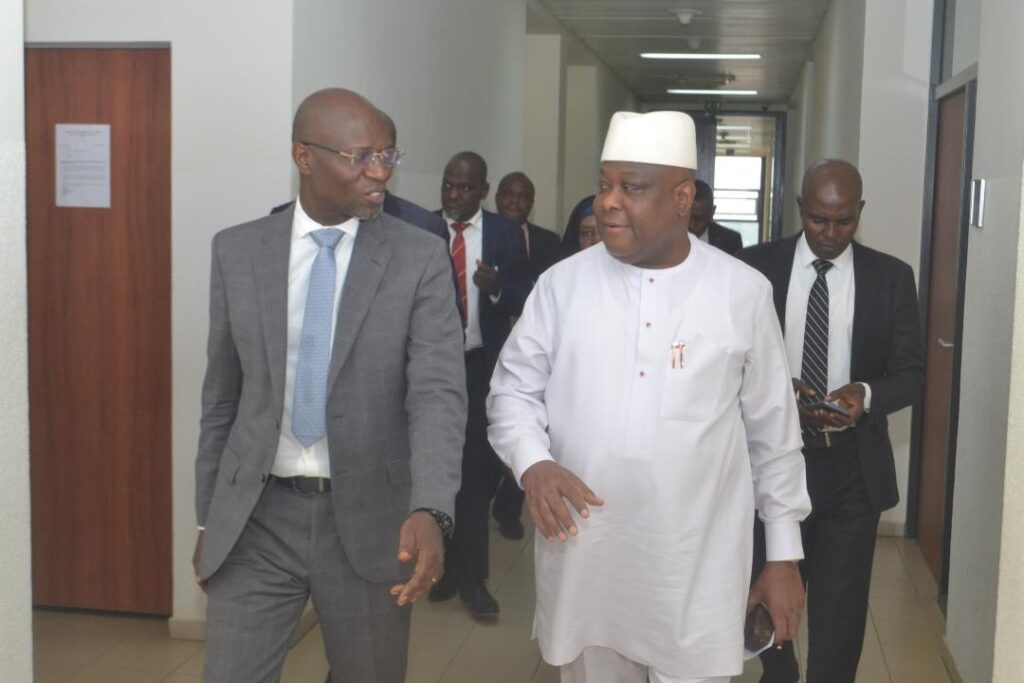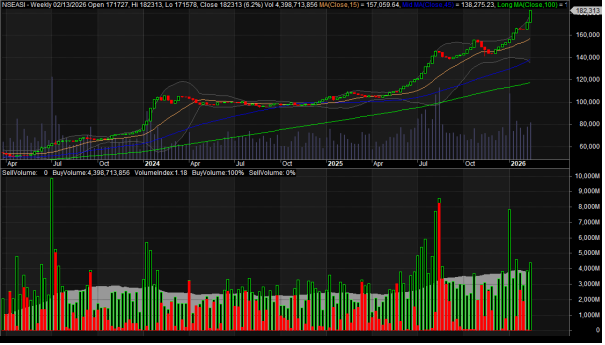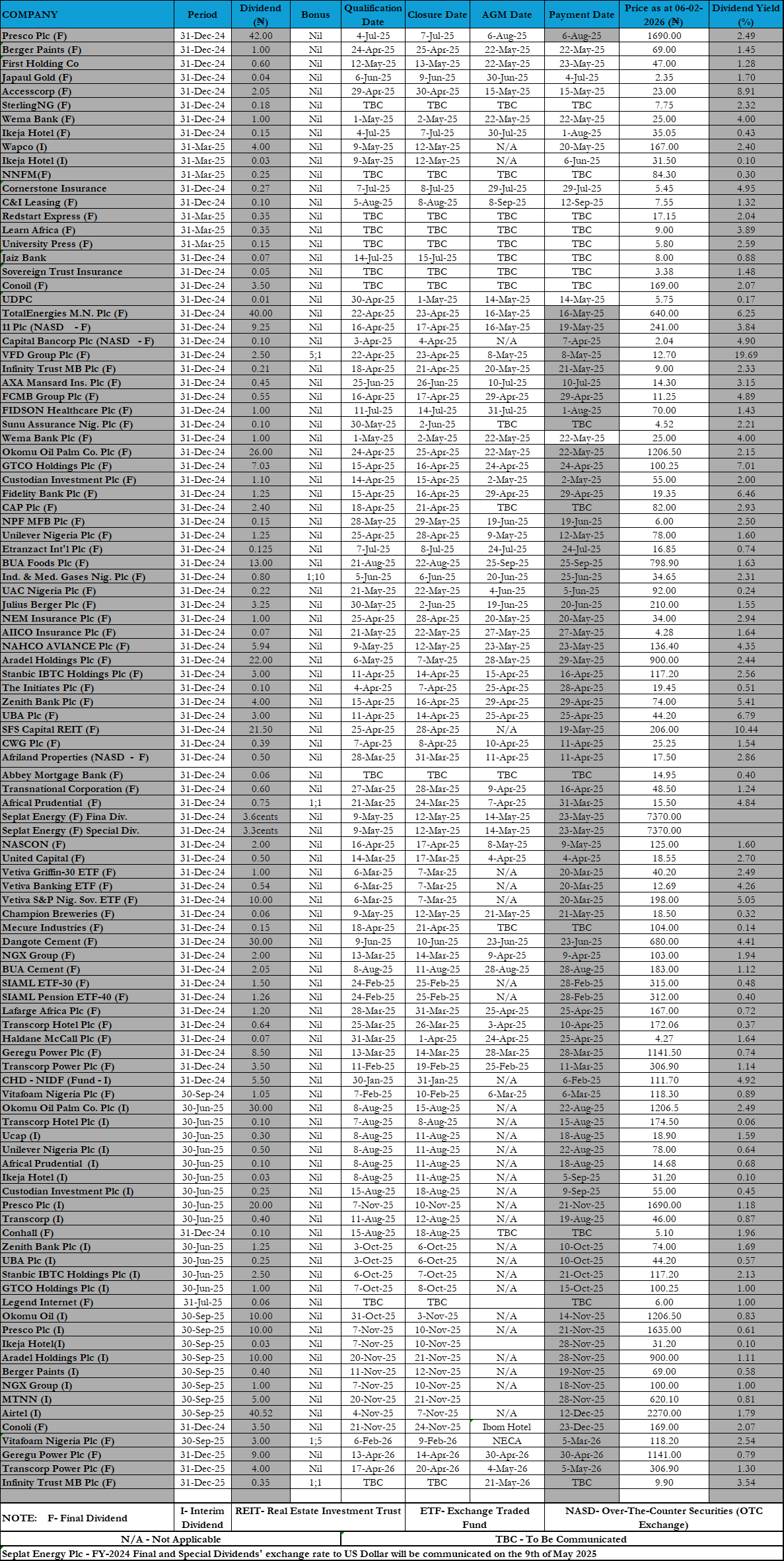
- Reduced Penalties Collection Sign Of High Rules Compliance Among Operators- SEC DG
Caption: Chairman of the Committee on Capital Market, Sen. Osita Izunaso (right), in a chat with the Director General, Securities and Exchange Commission, Dr. Emomotimi Agama, during the budget defence by the SEC before the Senate Committee on Capital Market in Abuja, Tuesday.
The Chairman of the Senate Committee on Capital Market, Senator Osita Izunaso, on Tuesday in Abuja, said the National Assembly has transmitted the Investments and Securities Bill 2024 to President Bola Ahmed Tinubu for assent.
Izunaso, who spoke during the budget defence of Securities and Exchange Commission (SEC) in Abuja, said lawmakers expect the President to sign the bill into law within the next 30 days.
The Senate President, he announced, “has signed the Investments and Securities Bill 2024 and it has now moved to the Executive for assent. We have 30 days for that to happen and we expect that the President will assent to it.”
Senator Izunaso also told the meeting that the Committee has followed up with a written directive to the Minister of Finance to include a N10bn special fund for investor education in the capital market as part of the 2025 budget.
Also speaking, Senator Anthony Yaro commended the commission for the approach taken in 2024, adding that with the positive happenings like the ISB and the reduction in deductions, the SEC is expected to perform better.
“I believe these developments will boost your performance in 2025. We know your capacity and what you can do, but you need to do more”, he stated.
Contributing to the 2024 budget performance, Senator Victor Umeh expressed worry about false information being put out to the public by companies in a bid to defraud Nigerians.
“I am worried about regulation and enforcement so that companies would not just bring up cooked figures to defraud Nigerians. Let your eyes be on those that use the market to defraud Nigerians” he added.
In his presentation, Director-General of the SEC, Dr. Emomotimi Agama expressed the appreciation of the Commission to the National Assembly for the support and contribution of the Committee which has moved the market forward in 2024.
In 2024, he recalled that Nigeria was one of the best performing markets in the world, stressing that the support received from the National Assembly “gingered the market. There is a new spirit and that support has assisted us to achieve what we achieved together.
“Last year, we wished that the Federal Government’s 50% deduction would be reduced to 20% but we could not achieve that in 2024.
“We are glad to say that with the intervention of the committee and the Chairman, the Minister has signed the reduction of the deduction from 50% to 20%. We are hopeful that the implementation will take effect from March 1”, he stated.
Agama pointed out that the 2024 budget was properly administered, stressing that while projected income was N22.4bn, gross income received was N26.9bn, representing a surplus of 20.34%.
“We achieved 100% and went above it by 20%. Expenditures for the period was N20.8 billion while N12.68 billion went to deductions. Our net surplus was then N2.5 billion.”
On the reductions in penalties collected in 2024, Agama stated that the role of the commission is to encourage market participants to comply with laid down rules and regulations.
The SEC DG stated that penalties are charged when participants do not comply adding that the reduction is due to high level of compliance in the market.
“If you prepare participants and they comply, penalties will certainly be reduced. That reduction means the market is beginning to comply which increases efficiency”.
Agama explained that the capital market operates a disclosure, rather than a merit regime, adding that “every company and director has a responsibility for figures disclosed to the public. It is our responsibility to monitor the same to ensure that documents provided to members of the public are accurate. If they do not meet standards, such institutions will be penalised.”













